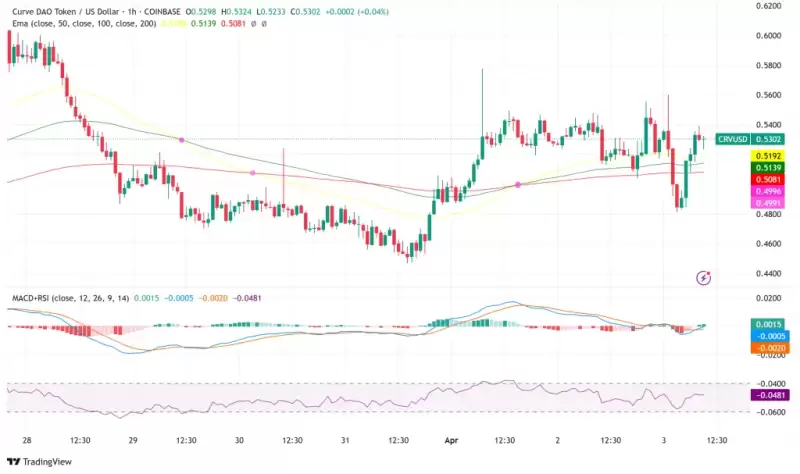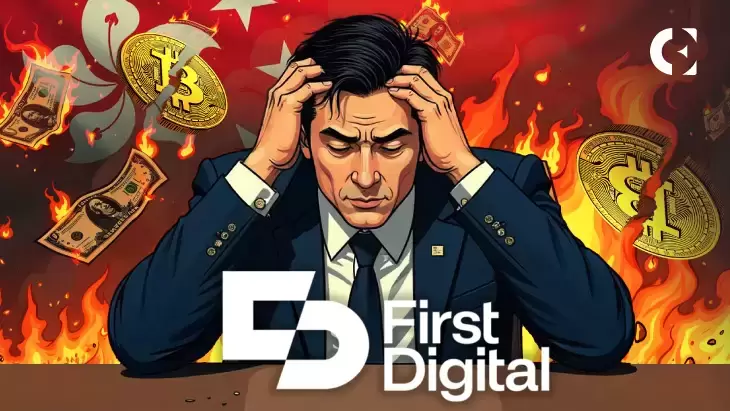 |
|
 |
|
 |
|
 |
|
 |
|
 |
|
 |
|
 |
|
 |
|
 |
|
 |
|
 |
|
 |
|
 |
|
 |
|
Cryptocurrency News Articles
The U.S. Securities and Exchange Commission (SEC) Will Hold Its First Closed-Door Meeting Under Acting Chair Mark Uyeda on Jan. 23
Jan 23, 2025 at 03:45 am
The Crypto community is speculating that the SEC may discuss the Ripple lawsuit in this meeting. Many believe the meeting could signal progress

The U.S. Securities and Exchange Commission (SEC) will hold its first closed-door meeting under Acting Chair Mark Uyeda on Jan. 23. While the specific agenda items are confidential, the meeting is expected to include discussions on litigation claims, settlements, enforcement actions, and administrative proceedings.
This meeting has garnered attention within the cryptocurrency community, particularly due to the SEC’s ongoing lawsuit against Ripple Labs over the sale of XRP. The meeting could potentially bring important updates or signal progress toward resolving the case. However, it's crucial to note that the SEC's closed-door meetings typically involve pre-planned decisions and may not result in immediate announcements.
As the meeting approaches, let's recap the key aspects of the Ripple v/s SEC case and its significance within the broader cryptocurrency regulatory landscape.
The legal battle between Ripple and the SEC commenced in December 2020, during Gary Gensler’s tenure as SEC Chair. Gensler pursued an aggressive approach to crypto regulation, targeting several cryptocurrency companies for alleged violations of securities laws.
In the Ripple case, the SEC alleges that the company sold XRP as an unregistered security, raising over $1.3 billion from U.S. retail investors. The SEC argues that XRP sales to both retail and institutional investors should be classified as investment contracts and, therefore, subject to securities registration and disclosure requirements.
Gensler defended this enforcement-driven approach, arguing that most cryptocurrencies, except Bitcoin, should be classified as securities. However, his actions faced significant criticism from the crypto industry. Many, including Ripple CEO Brad Garlinghouse, labeled Gensler’s strategy as “regulation by enforcement.” They argued that it stifled innovation and lacked clarity, leaving the industry in a regulatory gray area.
After Gensler's departure, Mark Uyeda took over as Acting SEC Chair. In contrast to his predecessor, Uyeda has been critical of the SEC’s heavy-handed approach to crypto regulation. Since joining the SEC in 2022, he has advocated for clearer policies and a more balanced regulatory framework.
Uyeda's leadership has given Ripple supporters hope for a resolution to the lawsuit. His pro-crypto stance suggests a willingness to reconsider some of the SEC’s past actions, including its ongoing appeal in the Ripple case. This gives the Ripple community a glimmer of hope for a favourable outcome.
If the Ripple case is discussed during the SEC meeting on Jan. 23, it could lead to significant updates, such as a settlement or dismissal of the lawsuit. However, the appeals court process is expected to continue, and a final resolution may not be reached until late 2025.
The outcome of the Ripple v/s SEC case is being closely followed not only by XRP investors but also by the broader cryptocurrency industry. The court's decisions and regulatory clarifications could benefit other cryptocurrencies by setting a precedent for how digital assets are treated under U.S. securities laws.
The lack of clear guidelines has long been a challenge for the cryptocurrency industry. Projects and investors often face uncertainty about whether a particular token is classified as a security. This ambiguity can lead to enforcement actions, deter institutional investment, and hinder innovation.
If Ripple wins the case through the appeals process, it could encourage regulators and courts to apply similar reasoning to other tokens. This would give cryptocurrencies like Solana, Litecoin and others a stronger footing in arguing their non-security status, particularly when traded on exchanges.
Additionally, projects still in development might use the Ripple decision as a guide to avoid regulatory pitfalls. The legal battle between Ripple and the SEC is expected to continue throughout 2023, with both parties presenting their arguments before the appeals court. The final outcome of this case will have a profound impact on the future of cryptocurrency regulation in the United States.
Disclaimer:info@kdj.com
The information provided is not trading advice. kdj.com does not assume any responsibility for any investments made based on the information provided in this article. Cryptocurrencies are highly volatile and it is highly recommended that you invest with caution after thorough research!
If you believe that the content used on this website infringes your copyright, please contact us immediately (info@kdj.com) and we will delete it promptly.
-

-

- Bitcoin (BTC) ETF Inflows Have Surged Again as Investors Ignore Trump's Reciprocal Tariffs
- Apr 03, 2025 at 02:45 pm
- Inflows into spot Bitcoin ETFs have surged once again as investors chose to look past the Trump reciprocal tariffs. The net inflows across all US ETFs for Bitcoin stood at $220 million
-

-

-

-

-

- How the 1995-S Kennedy Half Dollar Could Be Worth Over $6,000
- Apr 03, 2025 at 02:30 pm
- The 1995-S Kennedy Half Dollar might look like just another coin in your collection, but don't be too quick to dismiss it. This particular coin, especially the silver proof version, has gained significant attention in recent years.
-

-

- Bitcoin (BTC) price falls four per cent after Donald Trump imposes tariffs on trading partners worldwide
- Apr 03, 2025 at 02:25 pm
- Bitcoin as well as other major cryptocurrencies fell after US President Donald Trump imposed tariffs on trading partners worldwide, which triggered a slump in risky assets.



























































